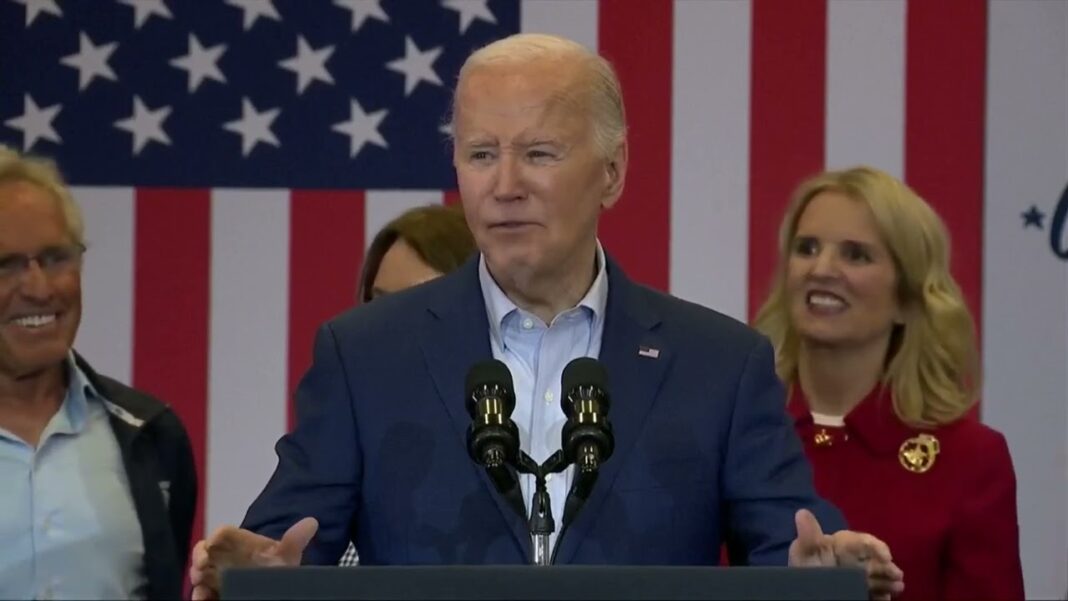“I wish I had a schilling,
For every senseless killing,
I’d buy a government.
America’s for sale,
And you can get a good deal on it,
And make a healthy profit,
Or maybe tear it apart,
You start with assumption,
That a million people are smart,
Smarter than one”
-NOFX, The Decline
Without hyperbole, one would be hard-pressed to imagine a more damning set of former affiliations and employers than those on NPR goon Katherine Maher’s resume. The only missing institutions to round out the smorgasbord of absolute evil are Raytheon and Goldman Sachs (although she did work for HSBC as well, which is morally equivalent to Goldman Sachs).
Via City Journal:
“Katherine Maher has a golden résumé, with stints and affiliations at UNICEF, the Atlantic Council, the World Economic Forum, the State Department, Stanford University, and the Council on Foreign Relations. She was chief executive officer and executive director of the Wikimedia Foundation. And, as of last month, she is CEO of National Public Radio.)”
(As a side note, it has been under-reported that Maher occupies a board position on Signal, which should give anyone who uses the app pause to reconsider how confidential their messages therein actually are.)
Related: The 2021 American ‘Left’ Is Now Undeniably a Cult
On the independent media circuit, the Katherine Maher ultra-progressive totalitarian story has been run into the ground, but here’s what I believe is a fresh angle on it in the form of a bit of excellent analysis offered by Harrison Smith of InfoWars regarding how the leftist hive mind views the merits of freedom of speech, depending on who or what is doing the speaking.
For some background, Smith’s analysis, which I’ll get into in a moment, was based on the following resurfaced comments by Maher to the Atlantic Council in 2021 vis a vis Wikimedia’s censorship regime targeted at the speech of unsanctioned individuals:
See video above.
“We took a very active approach to disinformation and misinformation, coming into not just the last election, but how we supported our editing community in an unprecedented moment where we were not only dealing with a global pandemic but a novel virus, which by definition means we know nothing about in real-time. And we’re trying to figure it out as the pandemic went along.
We really set up, in response to the pandemic but also the upcoming U.S. election as a model for future elections outside of the U.S., including as number happening this year.
The model was around how do we create a clearinghouse of information that brings the institution of the Wikimedia Foundation with the editing community in order to be able to identify threats early on, through conversations with government, of course, as well as other platform operators to understand what the landscape looks like…The number one challenge here that we — we see is of course, the First Amendment in the United States is a fairly robust protection of rights and — and that is a protection of rights both for platforms, which I actually think is very important, that platforms have those rights to be able to regulate what kind of content they want on their sites, but it also means that it is a little bit tricky to really address some of the real challenges of where does bad information come from, and sort of the influence peddlers who have made a real market economy around it.”
Related: NPR’s Mind-Rot Logic: ‘Even the Truth Can Be Misinformation’
Maher avows her support above for what Smith describes as “truth by committee,” meaning essentially that the institution is deserving of free speech protections because it is more easily managed and co-opted than an individual, who is definitionally less predictable and more prone to “go rogue” than an institution.
The institution can be technocratically managed through several mechanisms of control, like:
- Advertising pressures
- State sanctions (see: Section 230 for social media companies)
- Fiduciary responsibility to shareholders
- Blackmailed or bribed board members
- Groupthink
As such, an institution “ruled by committee” will almost never spontaneously take a stand on anything based on a moral calculation or any other cause; it will only act in the manner that the institutional incentives dictate that it acts.
This is, incidentally, also why the ruling class despises Donald Trump and has sought to undermine his political career from the start.
Unlike literally any of his predecessors from at least the past forty years, Trump came up on the presidential candidate scene as an unsanctioned upstart. He did not receive the blessing of the donor class to run, nor was he vetted and groomed by the intelligence community. His electoral power was derived from that fact that he caught fire with the grassroots — the kind of populist power that the ruling class fears above all.
Given his provenance and his base of support, he is viewed by the power structure with deep suspicion, just as any individual is freed from the constraints of institutional control.
Ben Bartee, author of Broken English Teacher: Notes From Exile, is an independent Bangkok-based American journalist with opposable thumbs.
Follow his stuff via Substack. Also, keep tabs via Twitter.
For hip Armageddon Prose t-shirts, hats, etc., peruse the merch store.
Support always welcome via insta-tip jar.







